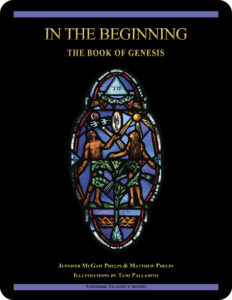 In the Beginning:
In the Beginning:
The Book of Genesis
Lesson 19 Jacob Wrestles at Peniel
the book of Genesis 32:1—33:20
Revised Standard Version Catholic Edition (RSVCE)*
New American Bible Revised Edition (NABRE)*
Catechism of the Catholic Church
ex libris (in our library)
cross references in the book of Genesis
next lesson: The Story of Dinah
This material coordinates with Lesson 19 on pages 106–110 in the study book In the Beginning: The Book of Genesis.
“And God saw everything that he had made, and behold, it was very good. And there was evening and there was morning, a sixth day. Thus the heavens and the earth were finished, and all the host of them. And on the seventh day God finished his work which he had done, and he rested on the seventh day from all his work which he had done.”—the book of Genesis 1:31—2:2
welcome to our in-depth study of the book of Genesis
We invite interested groups and individuals to check out the sample first lesson from this 28-lesson  Turning to God’s Word Catholic Bible study.
Turning to God’s Word Catholic Bible study.  These online study pages link to our free lesson video overviews as well as to a list of cross references in the biblical text. Other study aids include maps, charts, illustrations, additional commentary, and prayers based on the primary Scripture in each lesson. In the Beginning: The Book of Genesis has been granted an imprimatur and can be purchased from our website shop. If you have a Bible-study question or comment, click on one of the “ask us your question” or “what do you think” buttons on any online study page.
These online study pages link to our free lesson video overviews as well as to a list of cross references in the biblical text. Other study aids include maps, charts, illustrations, additional commentary, and prayers based on the primary Scripture in each lesson. In the Beginning: The Book of Genesis has been granted an imprimatur and can be purchased from our website shop. If you have a Bible-study question or comment, click on one of the “ask us your question” or “what do you think” buttons on any online study page.
open with prayer
It’s always wise to begin any Bible study with prayer, whether reading the Scriptures alone or meeting with others in a discussion study group. You can pray using your own words or use one of the opening prayers on our website. We especially like the following:
Lord Jesus, you promised to send your Holy Spirit
to teach us all things.
As we read and study your word today,
allow it to touch our hearts and change our lives. Amen.
let’s review—the book of Genesis 31:1–55
In Lesson 18 Jacob Separates from Laban, Jacob finds living with his wives’ father increasingly troublesome. After checking with Leah and Rachel, he decides it’s time to return to the land of Canaan. Fearing a difficult confrontation with Laban, Jacob waits until his father-in-law is off shearing sheep to pack up his family and all his belongings and hit the road. He’s unaware that Rachel has helped herself to her father’s household gods. Although it’s unclear from the biblical text, these household gods probably had value because whoever held them had proof of ownership of everything connected to the household. When Laban discovers that Jacob, Jacob’s family, all of Jacob’s goods, and Laban’s own household gods are missing, he sets out to recover the household gods. Not knowing what Rachel has done, Jacob agrees to let Laban search his tents. Rachel deceives her father, however, and he fails to find the household gods. He and Jacob agree to separate and do each other no future harm.
map notes—God calls Jacob back
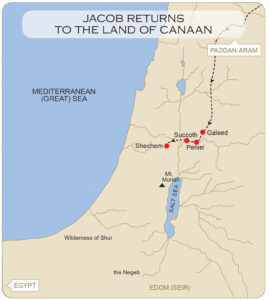 The map marks the path that Jacob takes when he returns to the land of Canaan from Paddan-Aram. Perhaps the most interesting thing about Jacob’s return to Canaan is that he’s been instructed by God to go back at this time. As a sign that Jacob isn’t alone, he’s met on his way by a contingent of angels. “This is God’s army!” Jacob declares. As Turning to God’s Word author Matthew Phelps mentions in the video overview for this lesson, this isn’t the first time that Jacob’s encountered a gathering of angels. On his way out of the land Canaan, Jacob fell asleep and saw angels ascending and descending a ladder to heaven. Now on his return, he’s met by more angels, only this time he isn’t asleep. Click on the map (right) to enlarge it. The original map is on page 109 in the study book In the Beginning: The Book of Genesis.
The map marks the path that Jacob takes when he returns to the land of Canaan from Paddan-Aram. Perhaps the most interesting thing about Jacob’s return to Canaan is that he’s been instructed by God to go back at this time. As a sign that Jacob isn’t alone, he’s met on his way by a contingent of angels. “This is God’s army!” Jacob declares. As Turning to God’s Word author Matthew Phelps mentions in the video overview for this lesson, this isn’t the first time that Jacob’s encountered a gathering of angels. On his way out of the land Canaan, Jacob fell asleep and saw angels ascending and descending a ladder to heaven. Now on his return, he’s met by more angels, only this time he isn’t asleep. Click on the map (right) to enlarge it. The original map is on page 109 in the study book In the Beginning: The Book of Genesis.
 wrestling with religious issues (16:21)
wrestling with religious issues (16:21)
In the video overview for this lesson, Turning to God’s Word author Matthew Phelps  discusses the biblical text’s focus on things that establish the nature of Jacob’s relationship with God. These include Jacob being met by an army of angels, praying before meeting his brother Esau, and finally wrestling with a man of unknown origin who blesses him and renames him Israel. It’s important to note that this encounter with a mysterious stranger identifies the moment in time where the LORD goes from being the God and Abraham and Isaac to the God of Abraham, Isaac, and Jacob. It’s also
discusses the biblical text’s focus on things that establish the nature of Jacob’s relationship with God. These include Jacob being met by an army of angels, praying before meeting his brother Esau, and finally wrestling with a man of unknown origin who blesses him and renames him Israel. It’s important to note that this encounter with a mysterious stranger identifies the moment in time where the LORD goes from being the God and Abraham and Isaac to the God of Abraham, Isaac, and Jacob. It’s also  significant that this encounter takes the form of wrestling, indicating something often overlooked about how our own relationships with God can develop amid religious struggles. The videos for this study are being redone and will be posted as they become available. The original videos for Lesson 4 through 28 will remain accessible until then.
significant that this encounter takes the form of wrestling, indicating something often overlooked about how our own relationships with God can develop amid religious struggles. The videos for this study are being redone and will be posted as they become available. The original videos for Lesson 4 through 28 will remain accessible until then.
The Scripture ranges for the videos being redone to accompany this Catholic Bible study from Turning to God’s Word will match the Scripture ranges for the sets of questions in the study book In the Beginning: The Book of Genesis. Viewers will be able to follow along as author Matthew Phelps discusses Lesson 19, “Jacob Wrestles at Peniel,” on pages 106–110 in the study book.
WHAT DO YOU THINK about Jacob’s prayer
In the book of Genesis 32:9–12, Jacob prays to the LORD who appeared to him in dreams at Bethel and at Paddan-Aram.
? Although Jacob refers to the LORD as “God of my father Abraham and God of my father Isaac,” what does Jacob say to show that he also acknowledges the beginning of a personal relationship with the LORD?
? Consider how this prayer passage points to the covenant promise  God made to Abraham?
God made to Abraham?
? How has God’s covenant been renewed with Isaac and with Jacob?
? While Jacob’s prayer indicates that he’s acting in faith and hope, what does he seem to be challenging God to remember?
? What was the primary message that God gave to Jacob at the time Jacob left Canaan for Paddan-Aram? If necessary, refer to the twenty-eighth chapter in the book of Genesis.
? What are the key features of the arrangement Jacob suggested to God when he left Canaan for Paddan-Aram? If necessary, refer to the twenty-eighth chapter in the book of Genesis to review the deal that Jacob put forward after he saw angels ascending and descending a ladder to heaven.
? Why do you suppose that Jacob’s now interested in praying to God?
? What does Jacob’s prayer indicate about his attitude toward God?
faith & hope—you could look them up in our archives
 In the thirty-second chapter in the book of Genesis, Jacob acts in faith and hope, two of the theological virtues. The third is love. Christians can be confused by the exact meaning of each of these virtues. To learn more about the words “faith” and “hope,” you can read Lost in Translation, an online column in which Turning to God’s Word author Matthew Phelps helps readers connect with ideas expressed in the original languages of the Scriptures. New Lost in Translation entries are posted on Mondays, and past entries are archived on our website. Contact us if you’d like to receive Lost in Translation by email every week.
In the thirty-second chapter in the book of Genesis, Jacob acts in faith and hope, two of the theological virtues. The third is love. Christians can be confused by the exact meaning of each of these virtues. To learn more about the words “faith” and “hope,” you can read Lost in Translation, an online column in which Turning to God’s Word author Matthew Phelps helps readers connect with ideas expressed in the original languages of the Scriptures. New Lost in Translation entries are posted on Mondays, and past entries are archived on our website. Contact us if you’d like to receive Lost in Translation by email every week.
WHAT DO YOU THINK about Jacob’s wrestling match?
The thirty-second chapter in the book of Genesis records Jacob wrestling with a stranger. This account of Jacob’s encounter discloses a number of important details about the sometimes tempestuous relationship between humanity and divinity.
? Why might it be significant that Jacob’s struggle occurs at night? 
? Why might it be significant that it lasts all night and that neither Jacob nor the stranger is able to keep the upper hand?
? In the book of Genesis 32:30 it seems obvious that Jacob has recognized the stranger as God. Consider whether the stranger then really was unable to escape from Jacob.
? Why might God be unwilling to leave the struggle before Jacob was willing to see him go?
? The reason why Jacob is renamed is apparent from the name he’s given—Israel. Consider why Jacob asks to learn the stranger’s name.
? What important change do you think has occurred in the relationship between Jacob and God?
? In what ways has your relationship with God been marked by struggle and conflict?
? What have you learned as a result of challenging God?
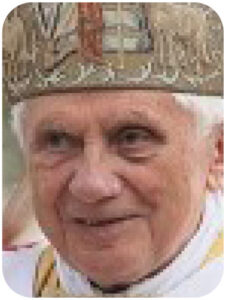 the popes inspire us—prayer expresses our relationship with God
the popes inspire us—prayer expresses our relationship with God
In “Prayer Is a Battle of Faith” on page 109 in the study book In the Beginning: The Book of Genesis, Pope Benedict XVI takes an in-depth look at what it means to be in relationship with God, based on Jacob’s experience of wrestling with God at Peniel: “Prayer requires trust, nearness, almost a hand-to-hand contact that is symbolic not of a God who is an enemy, but of a LORD of blessing who always remains mysterious, who seems beyond reach. The symbol of the struggle implies a strength of spirit, perseverance, tenacity in obtaining what is desired.”
 ex libris—how would you define the third theological virtue?
ex libris—how would you define the third theological virtue?
Can you offer a satisfactory definition for the virtue of love? If faith, hope, and love are of interest to you, check out our ex libris—main bookshelf page to learn more  about the book Faith Hope Love by the philosophical writer Josef Pieper. His small volume consists of three sections in which he relies on etymology to examine linguistic clues that shed light on the underlying meaning of these theological virtues. The result is surprisingly helpful information with many practical applications.
about the book Faith Hope Love by the philosophical writer Josef Pieper. His small volume consists of three sections in which he relies on etymology to examine linguistic clues that shed light on the underlying meaning of these theological virtues. The result is surprisingly helpful information with many practical applications.
what does God look like?
One of the more fascinating details in the thirty-third chapter in the book of Genesis is Jacob’s statement that seeing his brother Esau’s face is like seeing the face of God. This is especially intriguing because Jacob has just previously announced that he’s seen the face of God and lived. Consider what might have led to Jacob seeing in Esau a resemblance to God? How does Jacob know what God looks like to in order to make this comparison with his own twin brother Esau?
reading into Jacob’s behavior toward Esau
Although Jacob and Esau experience a peaceful reunion, Jacob seems eager to avoid journeying to Esau’s home in Seir. That he makes excuses and rejects Esau’s offer to leave some of his men with Jacob strongly suggests that Jacob is unwilling to rock the boat where his relationship with his brother is concerned. That Jacob makes no further effort to go to Seir reinforces the suggestions that Jacob is uncertain about his welcome and about the prudence of trying to exist in close proximity with his brother. Instead of traveling to Seir, Jacob builds a house a Succoth, quite some distance north of Esau’s home. Jacob also buys land in Canaan near Shechem, where he builds an altar to God.
t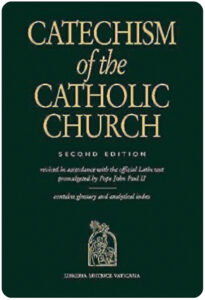 he best Catholic commentary about Scripture
he best Catholic commentary about Scripture
To find out more about how Church teaching is supported by Scripture passages in In the Beginning: The Book of Genesis, check out the Index of Citations in the Catechism of the Catholic Church. Links (Revised Standard Version Catholic Edition [RSVCE]) to the primary Scripture passages in the lesson and relevant paragraphs in the Catechism are provided here. Not every passage in the biblical text for this Catholic study is referenced in a Catechism paragraph, however.
the book of Genesis 32:25–31—paragraph 2373
to learn more, read more Scripture
If you’re having difficulty with a particular passage of Scripture, it can be helpful to read the relevant  cross references—but looking these up can take time. To make that easier, we’ve compiled the cross references from the Revised Standard Version Second Catholic Edition (RSV2CE)—the translation that we reprint in our study books. That list can be found at the top of every online study page, and it includes links to cross references in the primary biblical text for In the Beginning: The Book of Genesis.
cross references—but looking these up can take time. To make that easier, we’ve compiled the cross references from the Revised Standard Version Second Catholic Edition (RSV2CE)—the translation that we reprint in our study books. That list can be found at the top of every online study page, and it includes links to cross references in the primary biblical text for In the Beginning: The Book of Genesis.
don’t forget about our indexes & extra online material

 If you’re trying to locate information about a specific Scripture passage, you can look it up in the index at the back of the study book or sample lesson. If you want to find a particular commentary, you can look up its title in the topics index. To learn more about another book of the Bible for which there’s a Turning to God’s Word study, visit the online study directories to read the commentaries and watch any accompanying videos. Finally, if you have a question or would like to make a comment about any of our studies, you can use one of the “ask us your question” or “what do you think” buttons to email our authors.
If you’re trying to locate information about a specific Scripture passage, you can look it up in the index at the back of the study book or sample lesson. If you want to find a particular commentary, you can look up its title in the topics index. To learn more about another book of the Bible for which there’s a Turning to God’s Word study, visit the online study directories to read the commentaries and watch any accompanying videos. Finally, if you have a question or would like to make a comment about any of our studies, you can use one of the “ask us your question” or “what do you think” buttons to email our authors.
ex libris—Church documents & books about religious topics
Link to magisterial documents referred to in our Bible studies at ex libris—magisterial documents.  This listing includes significant recent encyclicals as well as a number of historical Church documents. Recommended books related to Scripture study can be found at ex libris—main bookshelf.
This listing includes significant recent encyclicals as well as a number of historical Church documents. Recommended books related to Scripture study can be found at ex libris—main bookshelf.
wondering how to pronounce some of these words?
The following link is to a reading from the New International Version (NIV) Bible. To listen, open the link and click on the audio icon above the printed text. Although not taken from the translations used in our study materials, the NIV reading provides an audio guide to pronunciation of words in this lesson’s primary biblical text. A close online version of the translation of the Bible used in Catholic liturgy in the United States as well as an audio guide for daily Mass readings for the current month can be found on the website of the United States Conference of Catholic Bishops (USCCB).
the book of Genesis 32:1—33:20 (NIV)
 close with Bible-based prayer related to this lesson
close with Bible-based prayer related to this lesson
Many of our Catholic study groups like to conclude their discussions with a prayer based on the scriptural focus of their lesson, and some participants include Scripture-specific prayer in their individual study. If you’re uncomfortable composing your own Bible-based prayers, you can follow our four easy steps. If you prefer, you can use the following prayer based on this lesson’s text from the book of Genesis.
O God, you rewarded Jacob for persisting in his struggle
to establish a relationship with you.
Foster in us a similar desire to press on
as we seek to know you better.
We ask this in the name of Jesus Christ, who offers us
an amazing opportunity to learn more about you. Amen.
Lesson 20 The Story of Dinah—the book of Genesis 34:1–31
Lesson 18 Jacob Separates from Laban—the book of Genesis 31:1–55
you also may like our study of the book of Exodus
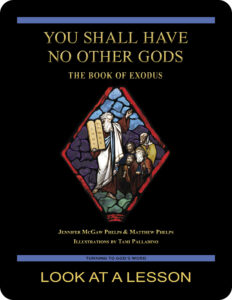 You Shall Have No Other Gods: The Book of Exodus, a 28-lesson Catholic Bible study with an imprimatur, provides an in-depth look at how significant events in biblical history that occurred thousands of years ago to descendants of Jacob remain relevant and even critical for present-day Christians to understand. The deliverance of the Hebrews from slavery in Egypt and the giving of Ten Commandments are examined along with the development of Moses’ relationship to God. Click on the book’s cover to view a sample lesson.
You Shall Have No Other Gods: The Book of Exodus, a 28-lesson Catholic Bible study with an imprimatur, provides an in-depth look at how significant events in biblical history that occurred thousands of years ago to descendants of Jacob remain relevant and even critical for present-day Christians to understand. The deliverance of the Hebrews from slavery in Egypt and the giving of Ten Commandments are examined along with the development of Moses’ relationship to God. Click on the book’s cover to view a sample lesson.
start a Turning to God’s Word Bible study
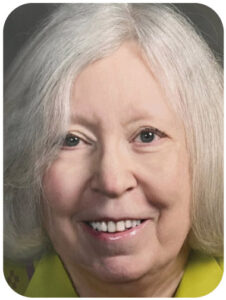 Thank you for your interest in our study In the Beginning: The Book of Genesis.
Thank you for your interest in our study In the Beginning: The Book of Genesis.  Information about beginning a Turning to God’s Word Catholic Bible study can be found at start a Bible study. Tami, Matthew, and I are available to answer questions and offer support. Contact us if you’d like to start a Turning to God’s Word study or have your schedule listed with other TtGW study groups on our website. —Jennifer
Information about beginning a Turning to God’s Word Catholic Bible study can be found at start a Bible study. Tami, Matthew, and I are available to answer questions and offer support. Contact us if you’d like to start a Turning to God’s Word study or have your schedule listed with other TtGW study groups on our website. —Jennifer
*There are seven deuterocanonical books in the Old Testament—the Books of Tobit, Judith, Wisdom, Sirach, Baruch, and First and Second Maccabees, as well as some passages in the Books of Esther and Daniel. Protestants usually refer to these works as “apocryphal,” a word that means “outside the (Protestant) canon” because they’re excluded from most Protestant Bibles. The word “deuterocanonical” means “second canon”; Catholics use that word to refer to any section of the Catholic Old Testament for which there are no extant, or existing, Hebrew manuscripts. All of the deuterocanonical books appear in the Septuagint, the earliest remaining versions of which date to the 1st century B.C. This Greek translation of the Old Testament was in common use by Jews at the time of Jesus—but the same books aren’t found in existing Hebrew manuscripts, which aren’t as old as the oldest version of the Septuagint. Learn more by reading How Do Catholic & Protestant Bibles Differ?
Turning to God’s Word printed Bible studies use the 2006 Revised Standard Version Second Catholic Edition (RSV2CE) translation for all Scripture references except those to the Psalms, which are taken from The Abbey Psalms and Canticles, prepared by the Benedictine monks of Conception Abbey and published in 2020 by the United States Conference of Catholic Bishops (USCCB). All Scripture links for the online study pages for In the Beginning: The Book of Genesis are to the 1966 Revised Standard Version Catholic Edition (RSVCE) translation. The New International Version (NIV) audio recordings follow the same chapter and verse numbering as the RSV Catholic translations, but the NIV translation doesn’t include the deuterocanonical books and passages.
The 1966 RSVCE uses archaic pronouns and verb forms such as “thee,” “thou,” “didst” in the Psalms and in direct quotations attributed to God. The 2006 RSV2CE replaces those with more accessible English. The few significant translation changes in the RSV2CE include rendering almah as “virgin” in the Book of Isaiah 7:14 and restoring the term “begotten” in the Gospel According to John 3:16.
Numbering varies for some passages in this Bible study. Turning to God’s Word studies (print and digital) follow the numbering in the Revised Standard Version Catholic translations (RSV2CE and RSVCE). Discrepancies in the New American Bible Revised Edition (NABRE) are noted in the Index of Scripture Citations in the study book and the online sample.
 You can learn more about the Psalms by viewing a sample lesson from the Turning to God’s Word Catholic Bible study Sing a New Psalm: Communicating with God Through the Prayers of the Church—Volume I: Lauds & Vespers. The second part of that study, Sing a New Psalm: Communicating with God Through the Prayers of the Church—Volume II: Vigils, Day Prayer & Compline, is scheduled for publication in 2025. Some verse numbers may vary in different translations of the Psalms
You can learn more about the Psalms by viewing a sample lesson from the Turning to God’s Word Catholic Bible study Sing a New Psalm: Communicating with God Through the Prayers of the Church—Volume I: Lauds & Vespers. The second part of that study, Sing a New Psalm: Communicating with God Through the Prayers of the Church—Volume II: Vigils, Day Prayer & Compline, is scheduled for publication in 2025. Some verse numbers may vary in different translations of the Psalms
